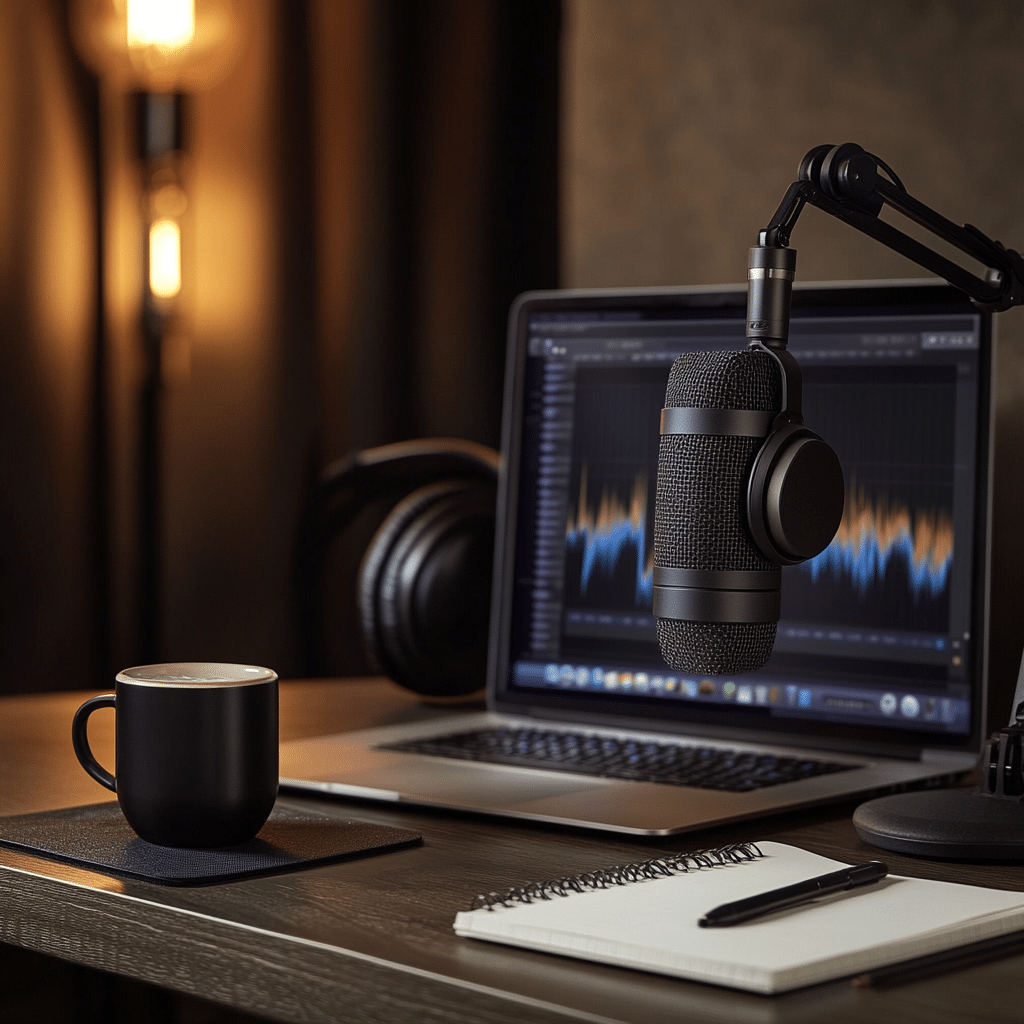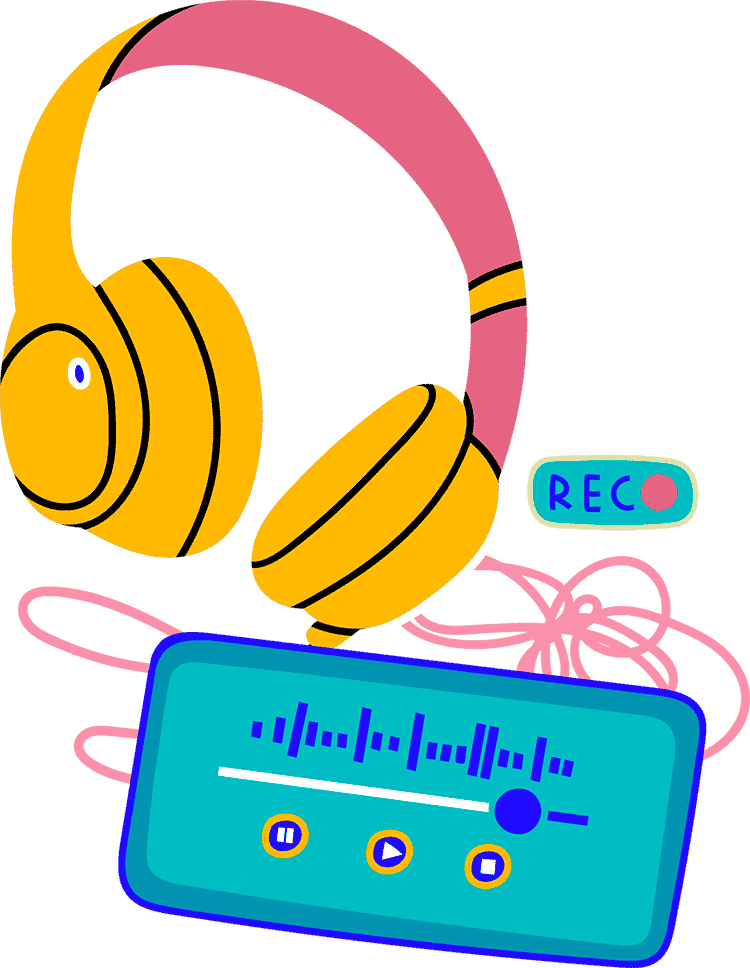The Old Playbook Is Dead—Performance Matters More Than Presence
Most branded podcasts fail. Not because podcasting doesn’t work—but because most brands don’t approach it strategically.
They create a show about themselves instead of one for their audience. They chase downloads instead of engagement. They expect instant results, then abandon it when those don’t come.
But the brands that get it right? They build industry authority, deepen customer relationships, and drive measurable business outcomes.
Here’s how to make sure your podcast is one of the winners in 2025.
1. The Old Playbook Is Dead—Performance Matters More Than Presence
The days of launching a podcast just to say you have one are over.
With millions of podcasts out there, your audience has infinite choices. If your show isn’t delivering real value, they won’t stick around.
How to Make Your Podcast Worth Listening To:
✅ Solve a Real Problem – Why should someone listen to your podcast instead of another? What insight, entertainment, or education are you providing?
✅ Tell Great Stories – Information alone won’t hold attention. Storytelling and narrative structure do.
✅ Make It Feel Professional – High-quality production and a strong host make a difference.
Example:
Amazon’s This Is Small Business doesn’t just discuss entrepreneurship—it delivers actionable insights from real founders, making it a must-listen.
Key Question: Is your branded podcast strategy built around delivering real audience value, or is it just another marketing asset?
2. Downloads Are a Vanity Metric—Here’s What Really Matters
Too many brands obsess over how many people downloaded their episodes—but downloads alone don’t equal impact.
A small, loyal audience that deeply engages with your brand is more valuable than a huge, passive one.
What to Measure Instead:
✅ Listener Retention – Are people staying through the episode, or dropping off after 5 minutes?
✅ Conversion Metrics – Are listeners taking action (signing up, booking demos, engaging further)?
✅ Brand Lift & Awareness – Are listeners more likely to trust, recommend, or work with your brand after hearing the show?
Example:
SAP’s The Cloud ERP Playbook may not have millions of listeners—but its highly targeted audience of CTOs and CIOs makes it an incredibly valuable asset for the brand.
Key Question: Are you tracking the right success metrics, or just chasing big numbers?
3. No Marketing = No Listeners (No Matter How Good Your Show Is)
“If we make a great podcast, people will find it.”
That’s not how it works. Even the best show won’t grow without a real distribution plan.
How to Get Your Podcast Heard:
✅ Cross-Promote on Other Podcasts – Guest on shows with similar audiences and run ad swaps.
✅ Leverage Your Owned Channels – Promote episodes via email, blogs, LinkedIn, and your website.
✅ Use Paid Promotion Wisely – LinkedIn Ads, YouTube pre-roll, and podcast-specific ad networks help reach the right listeners.
✅ Repurpose Your Content – One podcast episode should fuel blog posts, social clips, LinkedIn posts, and YouTube videos.
Example:
RBC’s Disruptors pairs every episode with social content from the host, John Stackhouse—boosting discoverability and engagement beyond audio platforms.
Key Question: Do you have a podcast growth strategy—or are you just publishing and hoping?
4. AI Can Help—But It Won’t Make a Great Podcast
AI is transforming podcast production. But while it can speed things up, it can’t replace creativity.
Where AI Helps:
✅ Automating Show Notes & Transcripts – Saves time, improves SEO.
✅ Audio Cleanup & Enhancement – AI tools can remove background noise and improve sound quality.
✅ Episode Summarization & Repurposing – AI can help turn long-form content into short, digestible clips.
Where AI Falls Short:
❌ Hosting & Conversation – AI-generated voices lack authenticity and emotional depth.
❌ Creative Storytelling – AI can structure information, but it doesn’t create compelling narratives.
❌ Building Audience Trust – People connect with human voices, personalities, and real conversations.
Example:
A great branded podcast isn’t just well-produced—it’s well-hosted, well-written, and well-marketed. AI can help. It’s a tool, but it won’t create a hit show on its own.
Key Question: Are you using AI to enhance creativity, or to replace it?
5. A Podcast Isn’t a Campaign—It’s a Long-Term Brand Asset
Many brands quit too soon. They launch a podcast, expect immediate results, and shut it down when they don’t see instant ROI.
But the best podcasts play the long game. They build over months and years, not weeks.
How to Build a Podcast That Lasts:
✅ Commit to at Least One Year – Real audience growth takes time.
✅ Refine Based on Data – Track performance, listen to feedback, and evolve your content strategy.
✅ Integrate It With Your Broader Marketing Efforts – The best branded podcasts fuel other marketing channels, not just audio.
Example:
IBM’s Scaling AIOPs for Business Outcomes didn’t explode overnight—but over time, it became a key thought leadership asset that positioned IBM as an industry leader in AIOPs. And its a unique piece of content for a unique audience.
Key Question: Is your branded podcast strategy designed for long-term success, or just a short-term content experiment?
The Branded Podcast Playbook for 2025
The old rules no longer work. To create a branded podcast that drives real business impact, brands need to:
✅ Create a show people actually want to listen to – Not just a corporate content piece.
✅ Measure engagement, not just downloads – Retention and action matter more than raw numbers.
✅ Invest in growth and distribution – A great podcast needs marketing, just like any other content.
✅ Use AI strategically – Let it enhance efficiency, but keep creativity human.
✅ Commit for the long haul – Branded podcasts are long-term brand assets, not quick campaigns.
The brands that get this right will own their niche, build authority, and create lasting audience relationships.
The ones that don’t? They’ll disappear into the noise.
Now the question is: Is your brand’s podcast built for performance—or just for presence?
Let’s Talk
If you’re serious about making a branded podcast that works, let’s connect.
FAQs
Q1: What makes a branded podcast successful?
A successful branded podcast focuses on engagement, storytelling, and measurable business impact—not just downloads. It delivers value to listeners while reinforcing brand authority.
Q2: How do I market my branded podcast effectively?
Use a multi-channel marketing strategy, including cross-promotion on other podcasts, email marketing, paid advertising, and repurposing episodes into blog posts and social content.
Q3: How do I measure the ROI of a branded podcast?
Track listener retention, conversion rates, and brand lift instead of just downloads. High engagement and business impact are the best indicators of success.
Q4: Can AI help in podcast production?
Yes, AI can automate show notes, audio enhancement, and episode summaries, but it can’t replace human creativity, storytelling, or emotional connection with listeners.
Q5: How long does it take to see results from a branded podcast?
Branded podcasts require a long-term strategy. Expect 6-12 months to build a loyal audience and start seeing measurable business outcomes.
Roger transitioned from a 22 year career in advertising account management to co-founding JAR, a podcast podcast production agency. As CEO of JAR, he propels the company’s growth by prioritizing audience engagement and podcast marketing. Under his guidance, JAR flourishes with a global clientele, aiming to broaden its reach across North America and revolutionize brand connections through immersive storytelling.


